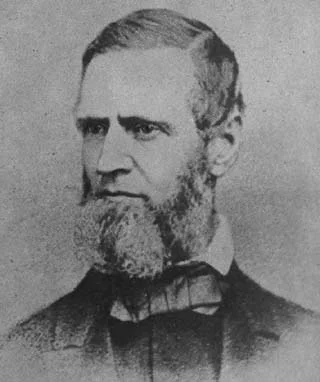Civil Government: An Exposition of Romans XIII. 1-7
James Dodson
ADVERTISEMENT
_____
This volume contains the substance of Lectures delivered upon Romans 13:1-7, in the course of a regular exposition of this Epistle, and is published in pursuance of the following resolution adopted at a special meeting of the Cherry Street Reformed Presbyterian Congregation, Philadelphia.
“Resolved—That Mr. Willson be requested to furnish a copy of said Lectures for publication, and that Messrs. Wm. Cochran, David Smith, and John L. Keys, be a committee to attend to said publication.”
CIVIL GOVERNMENT
CONTENTS
1853-James M. Willson.-This preface explains the importance of the subject matter for the consideration of Christians together with a a denounciation of the doctrine of passive obedience to civil rulers.
1853-James M. Willson.-This is a helpful overview and outline of the subject matter contained in this small book.
1853-James M. Willson.-This chapter begins with an exploration of the nature of the power of moral civil authority and the obedience due to such.
1853-James M. Willson.-This chapter talks about the sense in which “the powers that be” should be understood as ordained of God with several enforcements for duty to those who bear legitimate civil rule.
1853-James M. Willson.-This chapter is concerned with establishing a just apprehension of the true grounds upon which the institution of civil magistracy proceeds from God.
1853-James M. Willson.-Herein are those principles upon which the magistracy is to be employed discussed with refer to those who are good and bad citizens.
1853-James M. Willson.-In this chapter, the principles upon which obedience ought to proceed are discussed together with several remarks on the implications of those principles.
1853-James M. Willson.-In this chapter, Willson discusses the duties of citizens and subjects with respect to taxation and the general nature of civil duties as they pertain to religion.
1853-James M. Willson.-In this chapter, Willson considers a number of objections thought both plausible and biblical and explains why Romans 13 is not teaching a doctrine of passive obedience to tyrants.
1853-James M. Willson.-Willson concludes by asserting the right and duty to apply Scriptural principles to the US Constitution and its outworkings with a firm belief that the principles of the Bible will ultimately prevail.
1853-James M. Willson.-This contains a series of observations on certain Greek words and phrases taken from various authors in support of Willson’s views.











